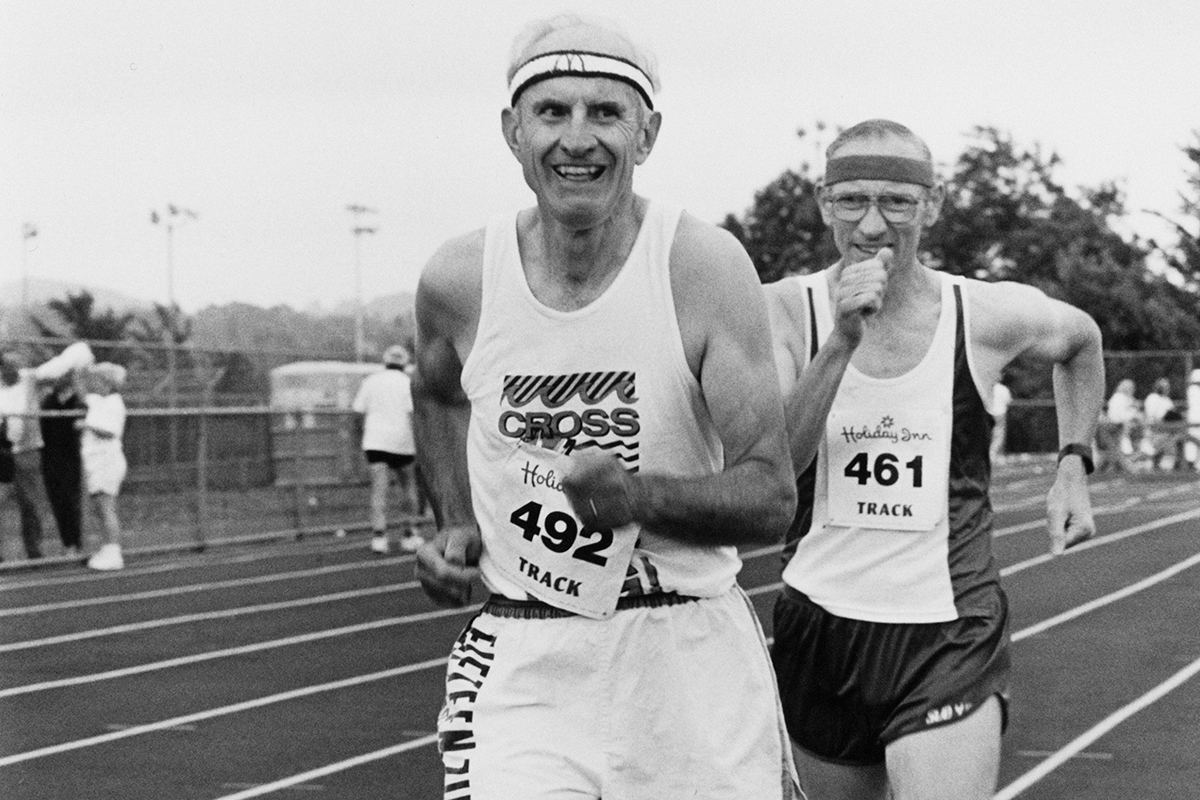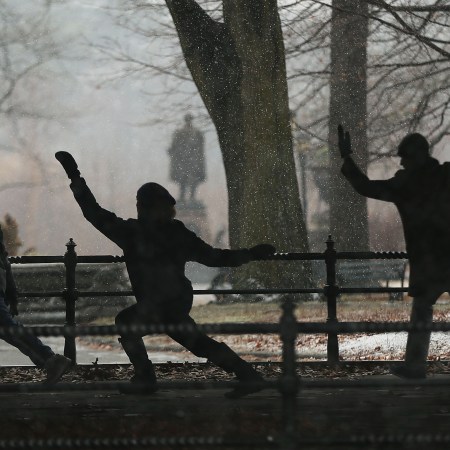There’s no hard and fast rule for when one becomes a senior citizen. Movie theaters say 60. Medicaid says 65. As life expectancy has increased and age stereotypes have shifted, some have pushed it back to 70.
Whatever the number is, there’s a surprising number of men and women still competing in road races and track meets well into the senior-citizen portion of their lives. The USATF standard has age groups for 60-69, 70-79 and 80 and over. These age groups don’t always include more than one competitor at a given event — among the New York Marathon’s 54,000 participants, there are usually fewer than 20 over the age of 80 — and often, the sole senior will have to run with an age group that’s decades younger … and several minutes faster.
In a recent essay for Outside, a British professor named Roger Robinson, who’s published a number of books on running and celebrated his 82nd birthday this year, riffed on the unique experience of life as an old man racer.
At his peak, Robinson’s times were outstanding. He once ran a 5K in 14:12. (That’s a 4:35 mile pace.) As he got a bit older, he set master’s records in the New York and Boston marathons. One of his best events might’ve been the 3000 meters, which is the exact distance he raced a few weeks ago. He finished dead last, in 16:03, lapped several times by the field. His personal record though, is nearly half that time, standing at 8:10 (4:23 pace per mile).
During these races, Robinson describes feeling “humiliated” and “frustrated” and “inadequate.” He sums up his place on the track with a vivid analogy: “I’m in a different dimension from the young runners, like pedaling a bicycle in a Nascar race.” And yet: he set a local, Wellington, New Zealand record for the 3000 meter, men aged 80 to 84. This is the weird reward to his inadequacy and shame: a new record so long as he crosses the finish line.
Still, there is beauty and community in Robinson’s efforts, as he’s the first to acknowledge. “Being in race shape,” Robinson writes, “gives me overall health, the respect and friendship of men and women 60 years my junior, the delight of an activity that is stimulating and full of change, and, above all, the feeling of being totally engaged with life’s journey, not merely lingering in its departure lounge.”
Each year, Robinson learns a bit more about running. He’s specifically intrigued by its relativity. All he can do is listen to his body, and race against whatever goal or rival is available to him that specific season of his life. It’s tempting for us to dismiss older runners — either with platitudes or scorn — but the challenge matters as much to them, Robinson argues, as anyone else.
Cheer on their efforts, then, but don’t infantilize. And one day, cherish the path they set for the rest of us. It’s so easy to shut a career at its peak. But where’s the fun in that? Robinson says: “[They] may think they evade the losses time brings, but they can only look back, not forward. They miss this ongoing journey, which truly is an exploration of the whole of life, its last 6.2 miles as well as the first 20.”
Whether you’re looking to get into shape, or just get out of a funk, The Charge has got you covered. Sign up for our new wellness newsletter today.


















